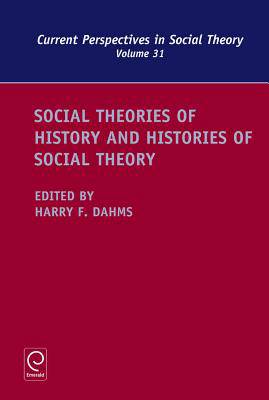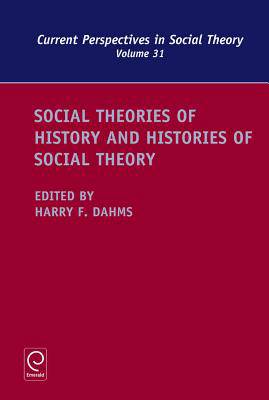
- Afhalen na 1 uur in een winkel met voorraad
- Gratis thuislevering in België vanaf € 30
- Ruim aanbod met 7 miljoen producten
- Afhalen na 1 uur in een winkel met voorraad
- Gratis thuislevering in België vanaf € 30
- Ruim aanbod met 7 miljoen producten
Zoeken
Social Theories of History and Histories of Social Theory
€ 335,45
+ 670 punten
Omschrijving
In different ways, social theory and social history represent discourses that implicitly or explicitly highlight the need to apply perspectives on modern social realities that are conducive to discerning and scrutinizing the centrality of large-scale processes that have been influencing and shaping the relationships between individuals, social groups and forms of organization, and society as a whole. Social theories with history stress form at the expense of substance (and social, political or cultural relevance); histories without social theory tend to amount to little more than the enumeration of isolated facts, at the expense of cohesive narratives that may be socially compelling and meaningful. Representing a range of approaches and emphases, the chapters in this volume address and illustrate linkages between social theory and history; social theory and historical analysis as mutually supportive frames of analysis, and affinities between the history of social thought and the history of modern societies. Both classical and more recent theorists feature prominently, especially Durkheim and Weber, but also such central figures in the field as Bourdieu and Luhmann.
Specificaties
Betrokkenen
- Uitgeverij:
Inhoud
- Aantal bladzijden:
- 352
- Taal:
- Engels
- Reeks:
- Reeksnummer:
- nr. 31
Eigenschappen
- Productcode (EAN):
- 9781783502189
- Verschijningsdatum:
- 11/12/2013
- Uitvoering:
- Hardcover
- Formaat:
- Genaaid
- Afmetingen:
- 152 mm x 229 mm
- Gewicht:
- 639 g

Alleen bij Standaard Boekhandel
+ 670 punten op je klantenkaart van Standaard Boekhandel
Beoordelingen
We publiceren alleen reviews die voldoen aan de voorwaarden voor reviews. Bekijk onze voorwaarden voor reviews.










